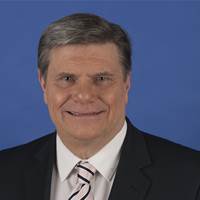The Commonwealth's announcement yesterday that it will invest $12 million into boosting 'STEM' subjects in Australian schools is yet another example of its failure to recognise the critical nature of these skills to the future of our economy.

The funding would be great to boost science, technology, engineering and maths in one city or one region, but spread across the national schooling system it works out at about $4 per head.
While doling out funds with one hand, it has also recommeded that the digital technology curriculum not be introduced for students until they reach year nine.
Perhaps somone needs to explain to our politicians what's required to build an innovation economy using some analogies from industries they do understand.
We build mines where minerals are plentiful and we grow crops where the soil is fertile. And with the application of refining technology, we turn marginal mines into profitable ones - irrigation and fertiliser can be used to make farms more productive.
The same is true of building an innovative industry.
The core competitive advantage required in innovative industries are human skills. These are skills in the disciplines that matter - Science, Technology, Engineering and Mathematics - the STEM subjects. This was the core message of Australia’s Chief Scientist Ian Chubb in his recently released paper on Australia’s future.
But just like developing a mine or improving a farm, these things take time.
To develop ingrained skills, modes of thinking about solving problems algorithmically need to be developed as the rest of thinking capability develops, not as an add-on at the end.
Turning a high school student into an experienced researcher takes a decade of research based degree studies.
Unfortunately, the Australian ecosystem has been spiralling in the wrong direction for a number of years. As other careers appear more attractive and the opportunities in STEM careers decline, less students have been studying these subjects. With less available staff there is less investment in businesses needing the skills.
The processes has now degenerated to the point where students planning to be maths teachers aren’t studying senior enough high school maths to properly qualify. This shortage of qualified teachers is just one of the concerns expressed in the Australian Mathematical Sciences Institute’s policy paper Dealing with Australia’s Mathematical Deficit.
The Business Council of Australia echoed these concerns in its own paper Building Australia’s Innovation System. In a recommendation headed “Creating the STEM capabilities for the future” the BCA adopted a number of elements from the Chief Scientists plan, including:
-
Recognising software capability as a foundational skill and introducing computer coding as a compulsory subject in the national curriculum.
-
Ensuring that secondary school mathematics and science are taught by qualified subject matter specialists.
-
Introducing specialised teachers in mathematics and science into all primary schools.
There are many, many causes of our current malaise.
One has been to focus our tertiary institutions on education as a product to be exported. This has been at the expense of their role in developing our own competitive advantage. This has been matched with a growing belief that all the benefits of education are captured in the higher earning potential of the graduate. This ignores the long understood externality benefit of skilled workers.
Another has been treating university research as a commodity only to be valued if it can be commercialised. Universities have increasingly become outsourced applied research houses. The better model is one where industry and the academy are competing with each other for the best researchers, creating a vibrant market for these skills.
The extent of the crisis still eludes some people. The Committee of Sydney published a report this month on realising the Fintech opportunity for Sydney. Despite acknowledging “the eco-system and environment for innovation need to be attractive and supportive and also that the skills and finance they need are readily available” the report makes no further mention of the lack of the STEM skills necessary to realise this opportunity.
This is not only for the IT workforce to realise identified opportunities in big data and analytics and various processing activities. The vast bulk of the so-called “quants” in finance studied physics or maths, not finance.
The Prime Minister, having not held one single meeting of the existing Prime Minister’s Science Engineering and Innovation Council, has announced the group will be restructured as the Commonwealth Science Council and become the “pre-eminent body for advice on science and technology in Australia”.
This new body, to meet twice a year, is supposedly going to advance the remaining Chief Scientist recommendations. The agenda released this week is the output of the Prime Minister’s taskforce announced in December that was to be released at the end of June.
This is all starting to feel like everything else in Australia that requires a little more foresight than it is ultimately given. Each side of politics looks for a short term announceable not a long term plan. Each creates new bodies and work agendas that repeat the work of previous bodies.
Meanwhile the opportunities simply go elsewhere.




_(23).jpg&h=140&w=231&c=1&s=0)
_(28).jpg&h=140&w=231&c=1&s=0)






 iTnews Benchmark Awards 2026
iTnews Benchmark Awards 2026
 iTnews Executive Retreat - Security Leaders Edition
iTnews Executive Retreat - Security Leaders Edition
 iTnews Cloud Covered Breakfast Summit
iTnews Cloud Covered Breakfast Summit
 The 2026 iAwards
The 2026 iAwards












_(1).jpg&h=140&w=231&c=1&s=0)



